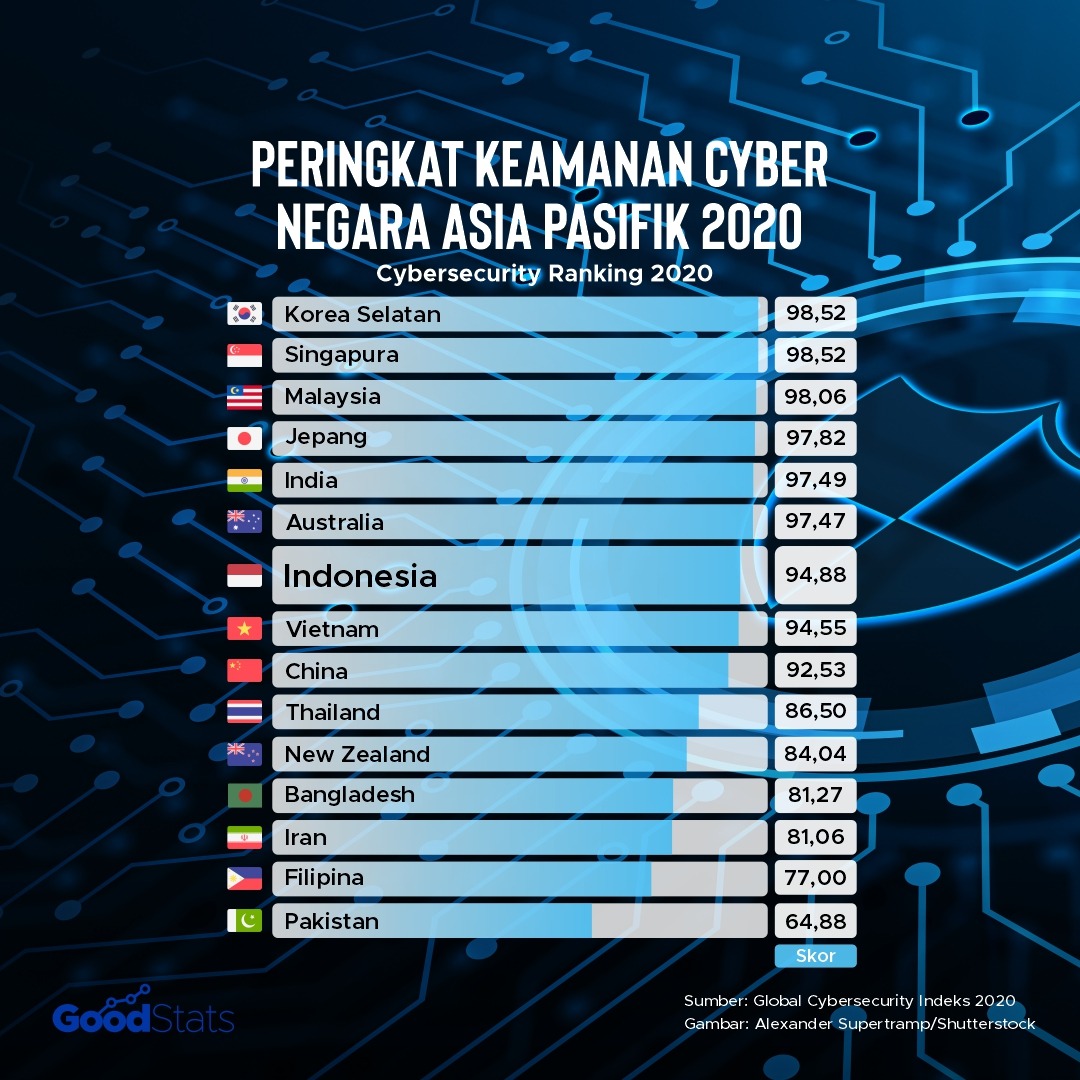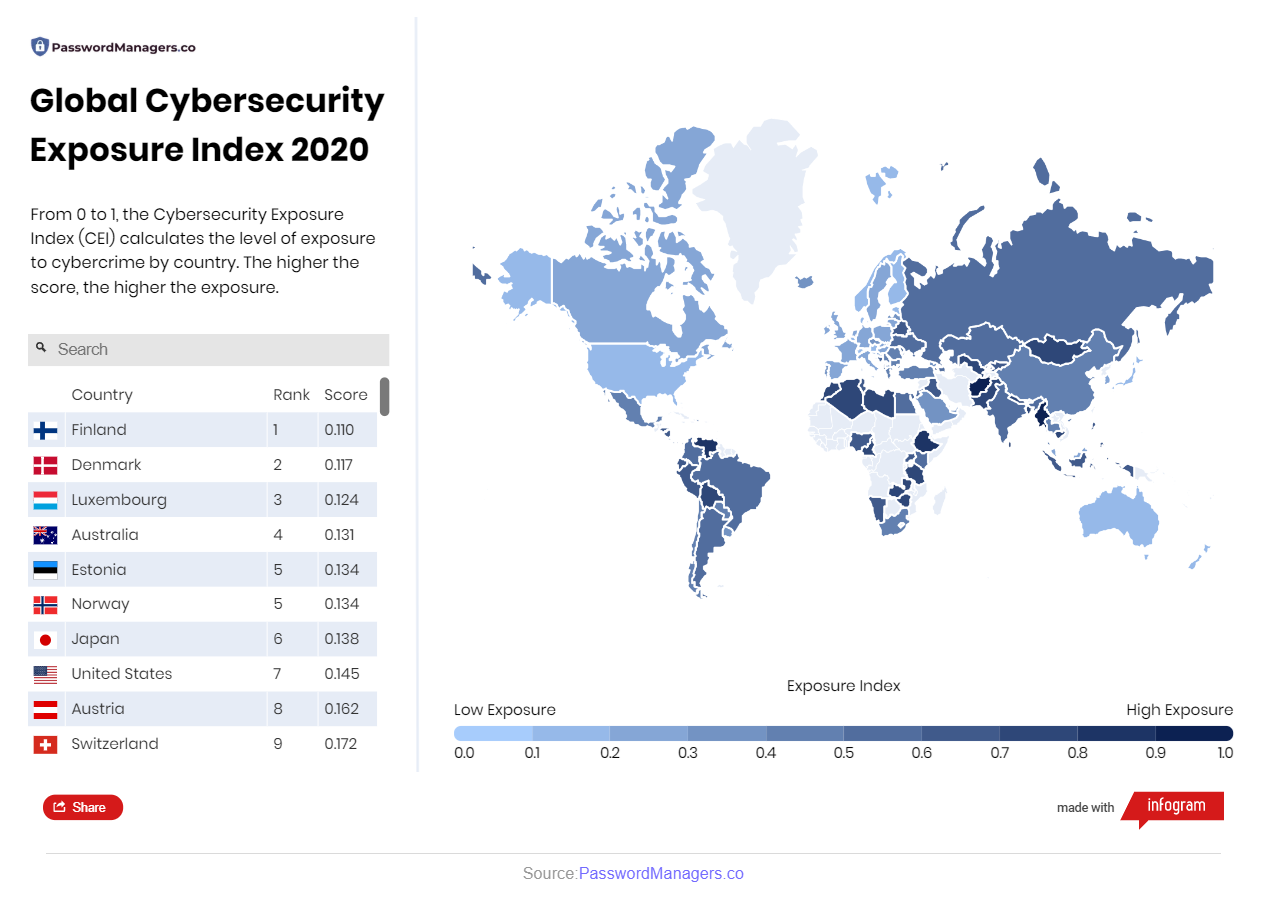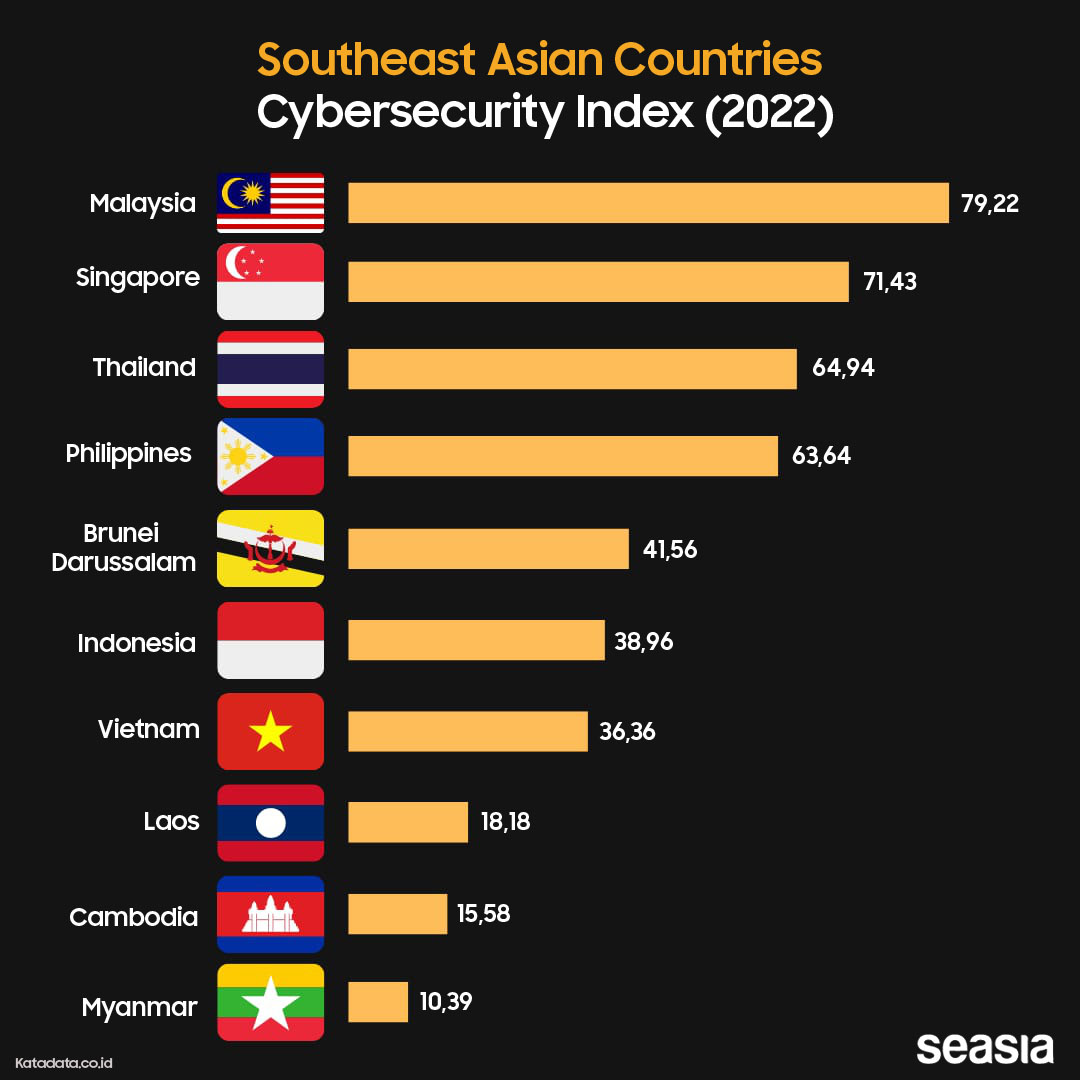Indonesia’s Cybersecurity Index (indeks keamanan siber indonesia) presents a comprehensive overview of the country’s cybersecurity landscape, highlighting challenges, initiatives, best practices, and emerging threats. This report serves as a valuable resource for businesses, individuals, and policymakers seeking to navigate the complexities of cybersecurity in Indonesia.
Indonesia’s cybersecurity landscape is characterized by both opportunities and risks. As the country continues to embrace digital transformation, the need for robust cybersecurity measures becomes increasingly critical. The government, private sector, and individuals must collaborate to address evolving threats and ensure the safety and security of Indonesia’s digital infrastructure.
Indonesia’s Cybersecurity Landscape
Indonesia, with its rapidly growing digital landscape, faces an evolving cybersecurity threat environment. The country’s expanding internet connectivity and adoption of digital services have increased its exposure to cyberattacks and data breaches.
Indonesia’s cybersecurity landscape is characterized by several key challenges and vulnerabilities. These include:
Lack of Cybersecurity Awareness
Many Indonesian internet users lack sufficient cybersecurity awareness, making them vulnerable to phishing scams, malware attacks, and social engineering tactics.
Outdated Infrastructure and Software
Outdated infrastructure and software in both public and private sectors create vulnerabilities that can be exploited by attackers.
Insufficient Cybersecurity Regulations
Indonesia’s cybersecurity regulations are still developing, leaving gaps that can be exploited by cybercriminals.
Cyberattacks and Breaches
Indonesia has experienced a significant increase in cyberattacks and data breaches in recent years. According to the National Cyber and Encryption Agency (BSSN), there were over 1.6 billion cyberattacks in Indonesia in 2022, a 30% increase from the previous year.
Notable cyberattacks in Indonesia include:
- In 2021, the Indonesian Ministry of Health was hit by a ransomware attack that disrupted its IT systems and compromised patient data.
- In 2022, the Indonesian e-commerce giant Tokopedia suffered a data breach that exposed the personal information of over 91 million users.
Government Initiatives for Cybersecurity
The Indonesian government recognizes the criticality of cybersecurity and has taken proactive steps to enhance the country’s cybersecurity posture. The government’s initiatives encompass a range of policies, regulations, frameworks, and awareness campaigns.
One key initiative is the establishment of the National Cybersecurity and Encryption Agency (BSSN) in 2017. BSSN serves as the central authority responsible for coordinating and implementing cybersecurity policies and strategies. It also plays a crucial role in incident response and threat intelligence sharing.
Policies and Regulations
The government has implemented several policies and regulations to strengthen cybersecurity. These include:
- Government Regulation No. 82/2012 on Electronic Transactions and Information Technology
- Presidential Regulation No. 104/2017 on the National Cybersecurity Strategy
- Ministerial Regulation No. 5/2018 on the Implementation of the National Cybersecurity Strategy
These policies and regulations provide a legal framework for cybersecurity, outlining the roles and responsibilities of various stakeholders, including government agencies, businesses, and individuals.
Awareness and Education
The government recognizes the importance of cybersecurity awareness and education. BSSN, in collaboration with other agencies, conducts regular awareness campaigns and training programs for government officials, businesses, and the general public.
Indonesia’s cybersecurity index is an indicator of the country’s preparedness against cyber threats. To enhance this preparedness, Indonesia has established jurusan keamanan siber di indonesia . These programs aim to equip individuals with the knowledge and skills to safeguard cyberspace.
By investing in cybersecurity education, Indonesia can strengthen its defenses and improve its cybersecurity index.
The government also supports the establishment of cybersecurity research and education centers in universities and research institutions. These centers play a vital role in developing skilled cybersecurity professionals and conducting research on emerging cybersecurity threats.
Best Practices for Cybersecurity in Indonesia
In the current digital landscape, it is crucial for businesses and individuals in Indonesia to prioritize cybersecurity measures to protect their sensitive data and online presence. Implementing robust cybersecurity practices can safeguard against cyber threats and ensure the integrity and confidentiality of information.
One of the fundamental steps for enhancing cybersecurity is deploying a firewall, which acts as a barrier between a computer network and the internet, monitoring and filtering incoming and outgoing network traffic. Additionally, intrusion detection systems (IDS) and antivirus software play a vital role in identifying and preventing unauthorized access and malware infections, respectively.
Protecting Personal Data and Online Accounts
Protecting personal data and online accounts requires vigilance and proactive measures. Individuals should create strong passwords and enable two-factor authentication whenever possible to prevent unauthorized access to their accounts. Additionally, being cautious when sharing personal information online and avoiding suspicious links or attachments can help mitigate the risk of phishing attacks.
Emerging Cybersecurity Threats in Indonesia

Indonesia, like many countries, faces a growing number of cybersecurity threats. These threats include ransomware, phishing attacks, and social engineering scams.
Ransomware is a type of malware that encrypts a victim’s files and demands a ransom payment to decrypt them. Phishing attacks are attempts to trick people into revealing their personal information, such as passwords or credit card numbers. Social engineering scams are attempts to trick people into giving up their personal information or money by manipulating their emotions.
Ransomware
Ransomware is a major threat to businesses and individuals in Indonesia. In 2021, there were over 1,000 reported cases of ransomware attacks in Indonesia. These attacks have cost businesses and individuals millions of dollars in lost revenue and data.
Phishing Attacks, Indeks keamanan siber indonesia
Phishing attacks are another major threat to cybersecurity in Indonesia. In 2021, there were over 500,000 reported cases of phishing attacks in Indonesia. These attacks have resulted in the theft of personal information, financial data, and other sensitive information.
Social Engineering Scams
Social engineering scams are a growing threat to cybersecurity in Indonesia. These scams often involve the use of social media to trick people into giving up their personal information or money. In 2021, there were over 200,000 reported cases of social engineering scams in Indonesia.
International Collaboration and Cooperation: Indeks Keamanan Siber Indonesia
In the ever-evolving landscape of cybersecurity, international collaboration and cooperation are paramount to combating threats effectively. Cybersecurity risks transcend national borders, requiring collective action and knowledge sharing among nations.
Indonesia actively participates in various regional and global cybersecurity initiatives, fostering partnerships and joint efforts to enhance its cybersecurity posture. These collaborations facilitate information exchange, capacity building, and coordinated responses to emerging threats.
Indonesia’s Involvement in Regional and Global Initiatives
- ASEAN Cybersecurity Centre (ACSC):Indonesia is a founding member of the ACSC, which promotes regional cooperation in cybersecurity, including incident response, capacity building, and policy harmonization.
- Asia-Pacific Economic Cooperation (APEC):Indonesia actively contributes to APEC’s Cybersecurity Working Group, focusing on developing regional cybersecurity frameworks, sharing best practices, and enhancing cross-border collaboration.
- International Telecommunication Union (ITU):Indonesia is an active member of the ITU, participating in various initiatives related to cybersecurity standardization, capacity building, and policy development.
Successful Partnerships and Joint Efforts
Indonesia has forged successful partnerships with international organizations and governments to strengthen its cybersecurity capabilities:
- Cybersecurity Cooperation with the United States:Indonesia and the United States have established a robust cybersecurity partnership, including joint exercises, information sharing, and capacity building programs.
- Collaboration with Interpol:Indonesia works closely with Interpol to combat cybercrime, including investigating and disrupting international cybercriminal networks.
- Joint Cybersecurity Exercises:Indonesia regularly participates in international cybersecurity exercises, such as the ASEAN-CERT Exercise and the Cyber Polygon exercise, to enhance its response capabilities and foster collaboration.
Final Conclusion

The indeks keamanan siber indonesia serves as a roadmap for enhancing cybersecurity in Indonesia. By embracing best practices, fostering international collaboration, and investing in cybersecurity education, Indonesia can strengthen its defenses against cyber threats and create a more secure digital environment for all.
Answers to Common Questions
What are the key challenges facing Indonesia’s cybersecurity?
Indonesia faces a range of cybersecurity challenges, including a shortage of skilled cybersecurity professionals, limited awareness of cybersecurity risks among businesses and individuals, and the increasing sophistication of cyberattacks.
What role does the Indonesian government play in enhancing cybersecurity?
The Indonesian government has implemented a number of policies, regulations, and frameworks to enhance cybersecurity, including the National Cybersecurity Strategy and the National Cyber and Encryption Agency (BSSN).
What are the best practices for cybersecurity in Indonesia?
Best practices for cybersecurity in Indonesia include implementing security measures such as firewalls, intrusion detection systems, and antivirus software, protecting personal data and online accounts, and educating employees and individuals about cybersecurity risks.


